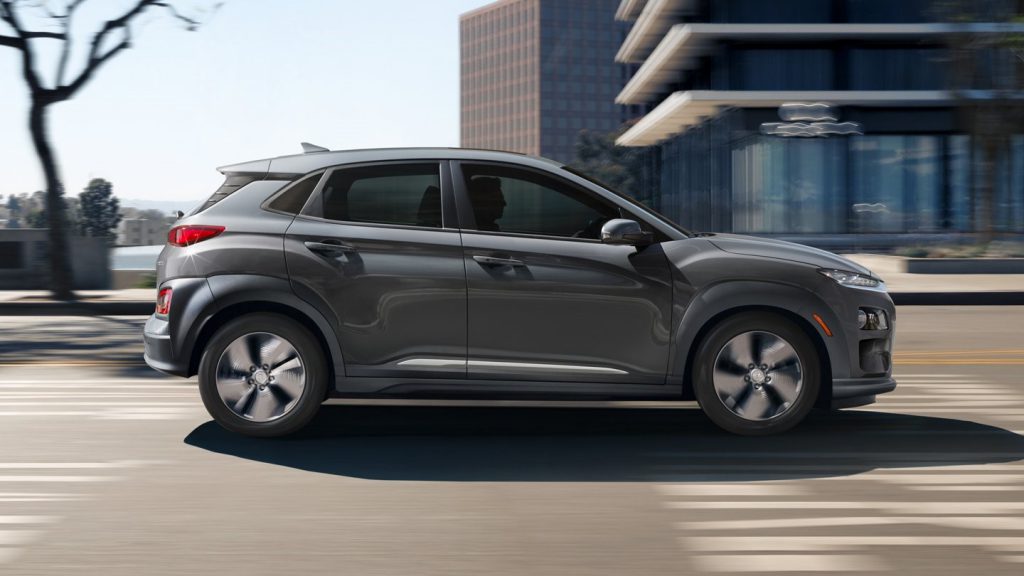
Hyundai Motor Co.’s recall of nearly 82,000 electric vehicles highlights how costly the shift to the industry’s new frontier can be for all the automakers piling in, both to their balance sheets and their brands.
The recall mostly affects Hyundai’s best-selling electric Kona crossover and stems from fire risks in battery cells produced in China by LG Energy Solution Co. It is expected to cost about 1 trillion won ($900 million) and will be reflected in fourth-quarter results, though the final figure will be based on negotiations with LG Energy, the South Korean automaker said Wednesday.
The cost of Hyundai’s recall equals nearly half of its 2020 net income and “underscores the significant financial risks and potential brand damage that can arise following new EV rollouts,” Bloomberg Intelligence analysts Steve Man and Joanna Chen wrote Thursday.
Hyundai’s shares were little affected by news of the recall
Government probes into issues such as battery fires can also lead to delays in model launches and hurt sales, Man and Chen said. That’s a “looming risk” for others such as Tesla Inc., which was recently summoned by regulators in China over issues including battery fires and abnormal acceleration.
Globally, there have been 16 reported cases of Kona EVs catching fire, including in Canada and Australia in 2019, according to Yonhap News. The latest recall follows one announced in October involving more than 25,000 Kona EVs. That was also based on fire risk associated with LG Energy batteries. Over 5,700 Ioniq compact EVs and 305 Elec City buses are also being recalled this time.
Other entrants into the booming EV market have stumbled with safety issues, with Chinese upstarts Li Auto Inc. and Nio Inc. among those issuing call backs. Tesla has faced battery-fire problems, as have traditional automaker giants venturing into the EV arena, including Ford Motor Co., BMW AG and General Motors Co., which recalled about 70,000 Chevrolet Bolt EVs due to fire risk stemming from batteries also made by LG Energy.
LG Energy said Wednesday it will work closely with Hyundai on the recall and that it will improve safety protocols around its manufacturing and quality-inspection processes.
Like many others, Hyundai is plowing resources and efforts into EVs. The company plans to spend 60 trillion won on this side of its business over the next five years, as well as develop autonomous and flying cars.
Hyundai’s swift action should at least help ensure demand for EVs won’t take too much of a hit, while its decisiveness is “a lesson for other automakers,” said Kwon Soon-woo, an analyst at SK Securities Co. in Seoul.
“With the shift to EVs in its early stages, mishaps can’t be avoided,” he said. “What’s more important is to cut your losses quickly so that it won’t damage your brand image. Once you lose that, it’s going to be a long struggle for any automaker to regain that confidence.”
Hyundai’s shares were little affected by news of the recall. After dropping 3.9% Wednesday, they rose 4.3% Thursday. They’ve doubled in value over the past 12 months.
Hyundai is conducting a major marketing campaign for its Ioniq 5, with pre-orders starting in South Korea on Thursday. The company aims to sell 70,000 of the vehicles this year and 100,000 in 2022, President Jaehoon Chang said this week. The Ioniq 6 sedan and Ioniq 7 sport-utility vehicle will also be added to its dedicated EV platform lineup.
SK Innovation Co. will be the primary battery supplier for the Ioniq models.
“Hyundai wants to clamp down on any negatives from this recall by taking a pre-emptive move so it can focus on Ioniq 5,” said Lee Han-joon, an analyst at KTB Securities Co. in Seoul. “It can then fully focus on future EV models crucial to its success.”
(By Kyunghee Park)
Comments